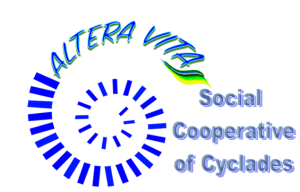Filter Bubbles
Abschlussbedingungen
Understanding echo chambers and filter bubbles is crucial in navigating today's digital landscape. By recognizing confirmation bias and seeking diverse perspectives from multiple sources, individuals can mitigate the effects of echo chambers and engage in more informed discussions. Critical assessment of information sources and respectful engagement with differing viewpoints are key to avoiding the pitfalls of echo chambers.
 The key objectives of this section are to
The key objectives of this section are to
- Increase awareness among participants about the concept of echo chambers and filter bubbles in online environments.
- Equip participants with strategies to recognize and mitigate the impact of echo chambers and filter bubbles on their online interactions and information consumption habits.
- Foster critical thinking skills and encourage participants to seek out diverse perspectives to avoid being trapped in echo chambers, promoting a more balanced and informed digital discourse.
Competencies you are developing:
- Critical Thinking: Enhancing participants' ability to critically evaluate information and recognize biases, enabling them to identify and navigate echo chambers effectively.
- Media Literacy: Developing competencies in analyzing media content to understand how echo chambers form and their impact on information consumption, promoting informed decision-making.
- Digital Citizenship: Fostering responsible online behavior by encouraging participants to engage with diverse viewpoints, challenge echo chambers, and contribute positively to digital discourse.
- Communication Skills: Cultivating effective communication skills to engage in constructive dialogue, respectfully challenge perspectives within echo-chambers, and promote open-mindedness.

Think for a moment...
- Can you recall a time when you realized that the information you were consuming online might be biased or one-sided? How did you respond to this realization?
- Do you think echo chambers exist outside of online platforms? Have you ever experienced or observed echo chambers in offline settings, such as social groups or workplaces?
- How do you think echo chambers contribute to the spread of misinformation or the polarization of society? Have you noticed any negative effects of echo chambers on online discourse or public opinion?
Zuletzt geändert: Dienstag, 25. Juni 2024, 12:34

